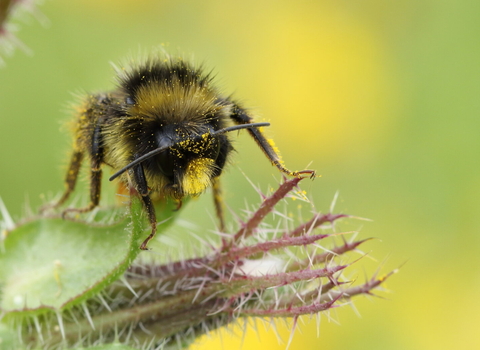In December, Defra Secretary of State, Steve Reed MP announced that the Government will develop a newi national food strategy in 2025 focussed on four areas: Food Security, Health, Environment, and Economy. All sounds good.
A flawed process?
A new Food Strategy Advisory Board to guide its development was recently announced. It has been created in close consultation with the Institute of Grocery Distribution (IGD) which will act as Secretariat. The Board is dominated by large food industry interests - 7 of the 12 independent representatives. It has one farmer, two NGOs (including the excellent Food Foundation) and one academic, expert Defra staff and the Government’s Chief Medical Officer, Professor Chris Whitty.
This dominance suggests a very strong focus on maintaining, maybe tweaking, the status quo and balance of power. Is this what’s needed?
Can government create a much better system from the ideas, beneficiaries and creators of the old?
With the huge threat of climatic instability, the continued decline of nature, the staggering costs of diet-related ill health and poor food access, is asking the existing industry wise? Maybe not.
Our recent discussion paper outlines how the whole food system creates these problems and so the whole system needs to change – with a major shift in objectives, power and resources.
The Advisory Board needs:
-
more nature friendly farmers;
-
better food traders designing new routes to market based on fair dealing and farm nature recovery;
-
ecosystem, climate, food security and circular economy experts (30% of the food produce is wasted); and
-
more public health expertise.
Lessons learnt?
A strong warning emerges from decades long efforts to address public health harms, such as obesity, from the food system. Unhealthy diets – and the ‘Junk food cycle’ described in the 2021 National Food Strategy - costs the UK around £268 billion per year. Yet a recent report revealed just how far powerful food industry interests reach to stop action i.e. right to the top.
Interviews with three former prime ministers, deputy prime ministers, health secretaries, and more, showed that despite their efforts and overwhelming evidence on ill health and economic harm caused by the food system, any attempts (e.g. 14 failed Obesity Strategies since 1990) were blocked. Food industry lobbying, political fears of ‘nanny statism’, prices, and complex food systems stopped top decision makers taking real action.
The same could be said of genuine government efforts to protect the farmed environment. We can’t protect any of it – or deliver sustainable growth and food security - without changing the system beyond the farm gate – from manufacturers, marketers and retailers to consumers.
What a new strategy needs to tackle
The Food Strategy, alongside wider policy, must deliver:
-
strategic, cross-departmental approaches and policies which balance needs from land for food, nature, climate resilience, health and good jobs, developed in a fair and transparent process. This must mean effective regulation, incentives and prioritising nature-based food production for nutritious, healthy and sustainable diets over bioenergy and animal feeds.
-
the vital tasks of reducing food waste in the whole food chain and the switch to more nature-friendly and climate-neutral diets. Standardised food traceability and labelling tools, curbs on junk food marketing and nature-based standards for public food procurement would help.
-
stronger and joined up regulation of all supply chains to remove abusive practices, whilst building up new, shorter, more rewarding markets. This means planning and investment for better food supply, new trade policy based on core environmental, welfare and health standards. And strong regulation of novel crops and technology.
Scale up best practice
As a wise man once said “You never change things by fighting the existing reality. To change something, build a new model that makes the existing model obsolete.” Many farmers and some great food traders are building a new reality – one based on values such as nature restoration, fair dealing, climate resilience with new routes to market.
Innovation will be discussed by Food Strategy Advisory Board – but should be not all about high tech, robotics and narrow ‘efficiency’ goals, but rather scaling out these true innovators. Make junk food, unfairly-traded, nature-negative food obsolete. The government needs to listen to their ideas.
The Minister in charge, Daniel Zeichner MP and the Advisory Board have a huge task, and without the right voices in the room the chance to drive a genuinely resilient food system that ensures better health, farm and rural livelihoods and which protects the very systems, the natural ones we depend on, will be lost.


